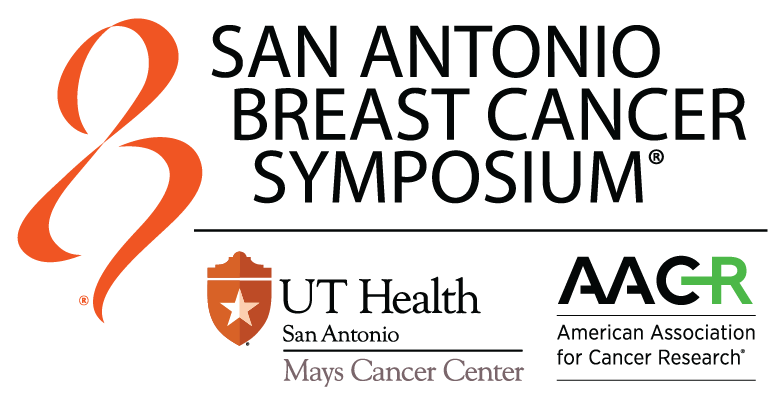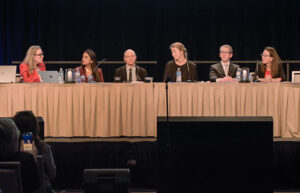Although most diagnoses for breast cancer in the United States occur in women over the age of 60, women younger than 50 have experienced increases in incidence over the past 20 years. These trends have prompted revised breast cancer screening guidelines and reinforced the need to discuss the unique biological and social circumstances of patients in earlier stages of life.
The 2025 San Antonio Breast Cancer Symposium® will shine a spotlight on these care considerations during Special Session 3: Breast Cancer in Young Women—Biology, Treatment, and Ethics, on Tuesday, December 9, from 11 a.m. to 12:30 p.m. CT in Hemisfair Ballroom 1-2 at the Henry B. Gonzalez Convention Center. Expert panelists will highlight key distinctions in how breast cancer and its care impact younger women’s lives, physically and emotionally, at a point when they may be establishing careers and families.

“Breast cancer, when it develops in young adults, is a biological and medical as well as a psychosocial problem. The numbers are increasing both in the United States and around the globe, and we don’t fully understand the reasons for the increasing prevalence,” said Session Moderator Ann H. Partridge, MD, MPH, Director of the Program for Young Adults with Breast Cancer, Vice Chair of Medical Oncology, and Eric P. Winer, MD, Chair in Breast Cancer Research at the Dana-Farber Cancer Institute.
During the session, Virginia F. Borges, MD, Professor of Medicine-Medical Oncology at the University of Colorado Anschutz Medical Campus, will review the epidemiology and biology of young-onset breast cancer.
“Unfortunately, young women with breast cancer overall have worse outcomes, compared to their older counterparts, despite the significant advances in the treatment and supportive care of people with breast cancer over the last few decades,” Dr. Partridge said. “So, there are disparities in patient outcomes by age, and these disparities are biggest when comparing younger vs. older women with estrogen receptor-positive disease.”
Dr. Partridge explained that the underlying biology in young-onset breast cancer has been associated with adverse disease features, such as larger or more aggressive tumors, and with subtypes such as triple-negative breast cancer or HER2-positive breast cancer. While these unfavorable biological features may drive some of the outcome disparities, Dr. Partridge said that the issue is more complicated, since other factors such as barriers to access and limitations to treatment opportunities and choices may impinge on the management of breast cancer in younger women.
Yara Abdou, MD, MSCR, Assistant Professor of Hematology and Oncology at the University of North Carolina, will speak about special management considerations for young patients with breast cancer, while Lisa Campo-Engelstein, PhD, Professor and Chair of the Department of Bioethics and Health Humanities at the University of Texas Medical Branch, will deliver a presentation about ethical considerations in the care of young patients with breast cancer. Christine Hodgdon, of GRASP Cancer, will share the patient advocate perspective during a panel discussion.
In contrast to an older postmenopausal patient, Dr. Partridge noted, a younger patient is more likely to have concerns about preserving fertility. The desire to conceive, attain motherhood safely, and build families with loved ones without compromising breast cancer outcomes adds to the complexity of care for many younger women with breast cancer. Dr. Partridge highlighted socio-political factors, particularly related to women’s reproductive choices, as another potential challenge.
Dr. Partridge also said that younger women with breast cancer have been shown to be less adherent to curative treatments, especially hormonal therapies, since “these treatments are harder to take, they are non-normative for very young women, they get in the way of the patient’s lives.”
Given the multifaceted challenges associated with breast cancer in younger women, Dr. Partridge said, “We need to do more for younger patients to support them, educate them around their treatment, and manage or help them self-manage their symptoms.”
Session titles, times, and locations are subject to change. For the most up-to-date SABCS program information, please visit the Program page at SABCS.org.





